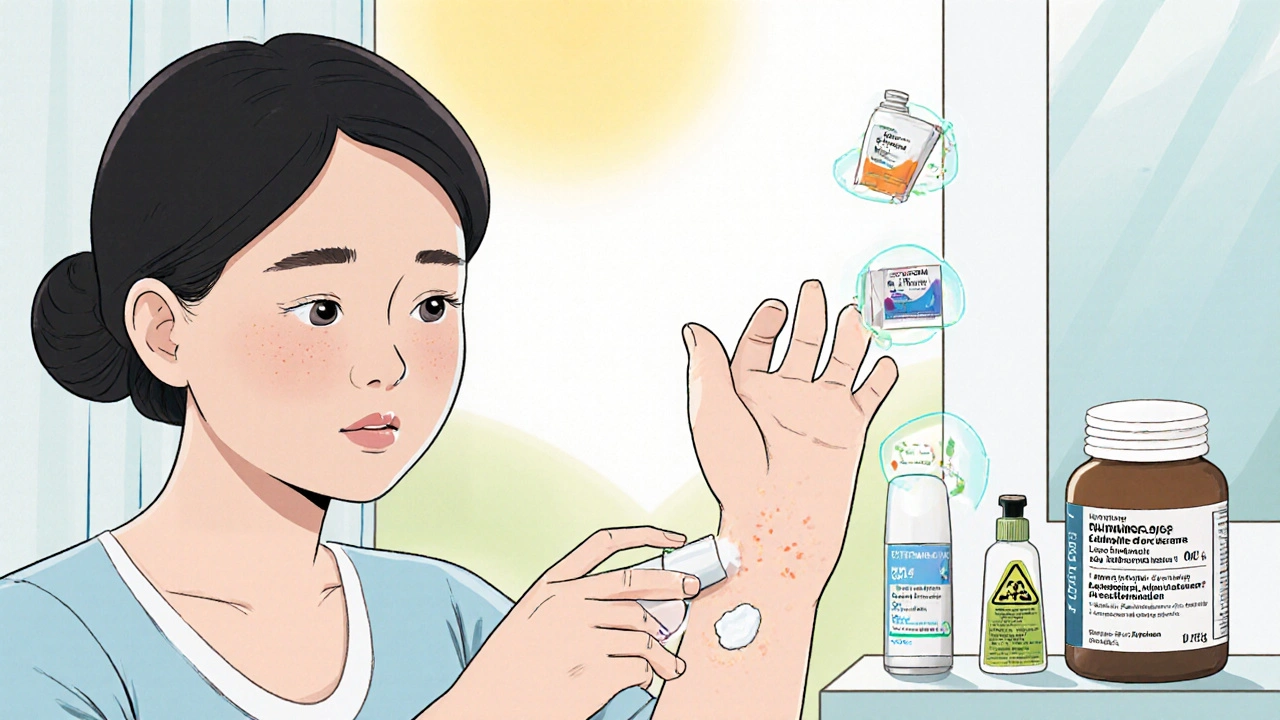Topical Steroids in Pregnancy: Safety, Risks, and What You Need to Know
When you're pregnant and dealing with eczema, psoriasis, or a stubborn rash, topical steroids, a class of anti-inflammatory medications applied directly to the skin to reduce redness, itching, and swelling. Also known as corticosteroid creams, they help manage flare-ups without system-wide side effects. But when you're expecting, every medication becomes a question: is this safe for my baby? The answer isn’t yes or no—it’s about strength, amount, and how you use it.
Not all topical steroids are the same. Low-potency versions like hydrocortisone 1% are generally considered safe for short-term use during pregnancy, even on large areas. Studies tracking thousands of pregnant women show no clear link between these mild creams and birth defects or low birth weight. But stronger versions—like clobetasol or betamethasone—carry more risk. If you’re using them daily for weeks, especially on thin skin like the face or groin, your body might absorb enough to affect fetal development. Your doctor won’t automatically say no to these, but they’ll want to know exactly how much you’re using, how long, and why. This isn’t about fear—it’s about smart control.
What you’re really managing isn’t just a skin condition—it’s stress, sleep, and daily comfort. A bad flare can make you feel miserable, which affects your mood, your eating, even your ability to rest. That’s why completely avoiding topical steroids isn’t always the best choice. Instead, think in terms of balance: use the weakest effective dose, limit application to affected areas only, and avoid occlusive dressings unless your provider says so. Many women find they need less over time as hormones shift, especially in the third trimester. And if you’re worried about long-term use, talk to your OB or a dermatologist who specializes in pregnancy—they can help you switch to safer alternatives like emollients, calcineurin inhibitors, or phototherapy if needed.
What you’ll find in the posts below isn’t just a list of drugs. It’s real-world insight from people who’ve been there: how norethindrone acetate helps with hormonal skin changes, how chloroquine risks differ from steroid side effects, and why some medications are safe in pregnancy while others aren’t. You’ll see how dosing, duration, and delivery method change the story. No fluff. No guesswork. Just what matters when you’re carrying a baby and trying to stay well.

Safe Topical Medications and Creams During Pregnancy: What You Can and Can’t Use
Learn which topical creams and medications are safe to use during pregnancy, from acne treatments to eczema creams. Avoid risky ingredients and use the safest options with confidence.
Detail




